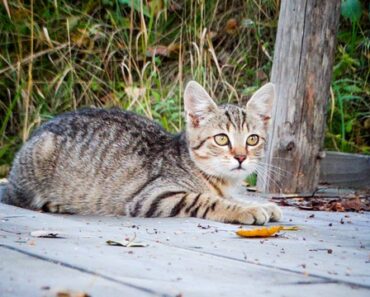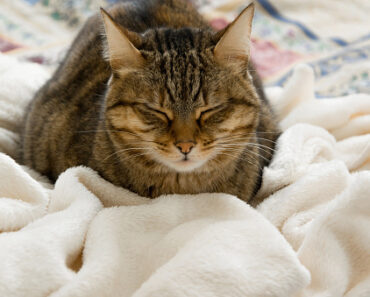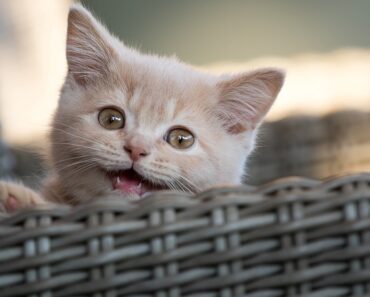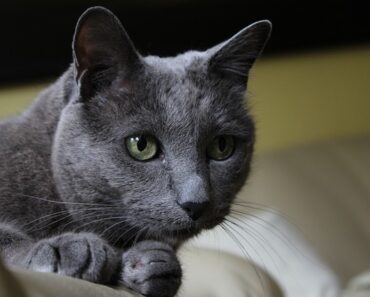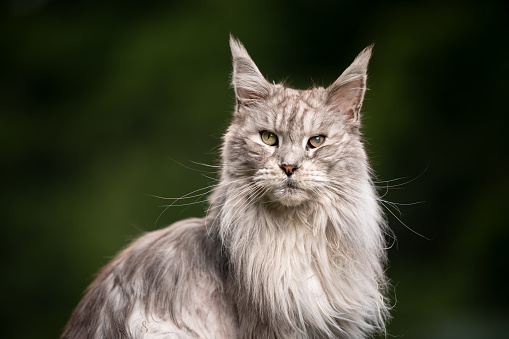
How do I choose the right kibble for my older cat? What are the new nutritional needs of my senior cat ? So many questions that we ask ourselves when our little feline cat is getting older. The editorial staff tells you all about his new nutritional needs and kibbles for older cats!
The transition to adulthood, mature, then senior
The life expectancy of a cat is 15 years on average, but it is higher in sterilized cats. Today, thanks to nutrition, medical treatments, risk prevention… That older cats are more and more numerous and can reach 20 years of life.
From the age of 7 years old: we are talking about a cat that reaches the mature age.
Kidney function will begin to deteriorate and tire. Food will be more difficult to assimilate and digest. It is strongly recommended that kidney problems be detected as early as possible to slow the progression and minimize the risks. The preservation of kidney functions is thus achieved through a dietetic diet.
On a physical level, a duller and drier coat can be observed. The first signs of aging, linked to behavior, may appear, such as: lack of dynamism, longer naps and weight gain (especially between 6 and 8 years of age).
From the age of 12 years old: we are talking about a cat becoming senior!
From the age of 12, the aging process accelerates considerably. The signs of age are more and more visible, depending on the individual!
Your cat is no longer as agile as before… Fewer desires to leap around, he prefers to doze off for long hours… Signs that your cat is losing a hair of its mobility. His joints have become more sensitive and painful. In order to prevent risks of osteoarthritis, it is strongly advised to consult your veterinarian.
When he was an adult your tomcat had a tendency to gain weight, but at senior age, he loses his legendary appetite and becomes thinner. His organism obstructs less the nutrients and he loses muscle mass. So you have to adapt your diet.
The hair, which used to be a beautiful coat, becomes less thick and loses its shine. It takes on a duller color and your old companion will be more sensitive to humidity and cold.
These cognitive senses will be turned upside down! Loss of orientation, balance, uncleanliness and his behaviour will also change. He will become more cranky, reluctant to be petted, or even aggressive. But don’t hold it against him! Your tomcat feels pain and expresses it this way.
The evolution of his nutritional needs
Feline food manufacturers will generally adapt their offers according to age. In this way, they accompany your little companion throughout its life, respecting its needs.
With age, your cat’s metabolism functions more slowly, as does his physical activity. Its energy needs decrease by 20%. In view of this observation, we will try to provide the same daily ration of kibbles, so as not to starve the animal, while providing it with an adapted diet.
Proteins
The cat is a carnivore and despite his advanced age, he will always consume protein in quantity! Whatever the age of your pet, you must always make sure to select high quality proteins (fresh meat, dehydrated meat). It is important to know that the kidneys work daily to assimilate and eliminate proteins. In older cats, the kidneys are weakened! Thus, high quality proteins will be more easily assimilated than other cheap foods. Beware also of excesses! If there is too much protein in your senior cat’s diet, his metabolism, weakened by age, will not be able to consume all of it!
Lipids
A diet too rich in lipids, favors the appearance of obesity. The senior cat has lower fat requirements than when he gambolled wildly as an adult. Prefer lipids of good quality, such as essential fatty acids (omega 3, omega 6), which are essential to maintain the health of the skin and coat of your old tomcat. Scientifically proven, essential fatty acids also have benefits on: kidneys, immunity, joints, vision…
Carbohydrates
Whether in adults or seniors, carbohydrates (sugars) should be restricted. The risk of diabetes being very high in older cats, it is preferable to vigilantly check the carbohydrate value on the menu! Regularly consult your veterinarian, who may prescribe a specific medical diet in case of diabetes.
Vitamins
As a cat ages, its metabolism tends to over-consuming its vitamins. Therefore, to regulate this phenomenon, it is advisable to provide him with a vitamin-enriched food. Vitamin E is indispensable, since it is anti-oxidant and helps prevent aging.
Minerals
It is necessary to bring an adequate quantity of calcium and phosphorus as for the adult cat. An excess will cause urinary stones, dramatic in older cats. Therefore, avoid foods with a high level of calcium and phosphorus.
What kibbles should I choose for my older cat?
In the vast cat food market, there are often two options to choose from: standard (economical) or premium quality. We advise you, whatever the age of your cat, to always choose premium quality kibbles for a balanced diet!
We have seen previously, that the nutritional needs of your older cat are very specific. Thus, to preserve his health and guarantee him a long life of serenity, it is essential to first make a health check with your veterinarian. The diet is at the heart of your cat’s health.
Opt then for special kibbles for old or senior cats with various properties:
- Tasty recipes to stimulate the cat’s appetite
- Low in fat and carbohydrates (starch) to prevent overweight
- Decreasing phosphorus levels (-0.6% approximately) to preserve kidney function
- Moisture conducive to chewing
- Highly digestible because the body assimilates food less well.
- Enriched with antioxidant vitamins (vitamin E) and essential fatty acids (Omega 3 and Omega 6)
The distribution of the feed rate is as follows per 100g of kibble :
- Protein: 27% (approximately)
- Fat: 15% (approx.)
- Carbohydrates (starches + fibers): 44% (approx.)
- Taurine, omega 3, omega 6, minerals, vitamins: 14% (approx.)

